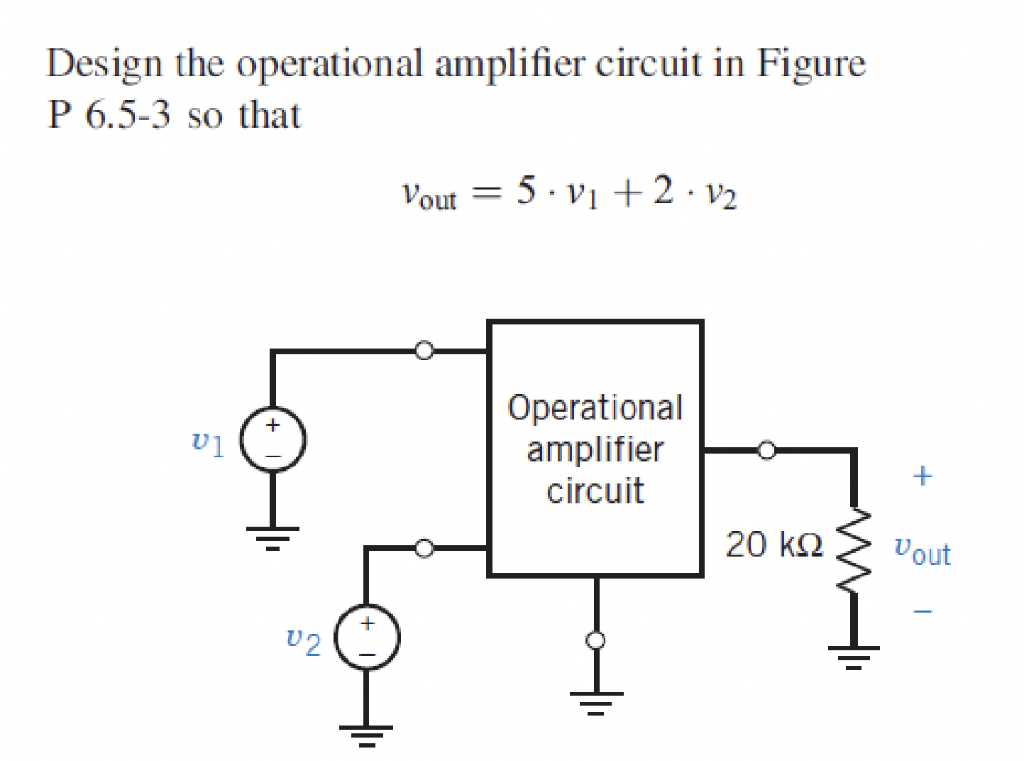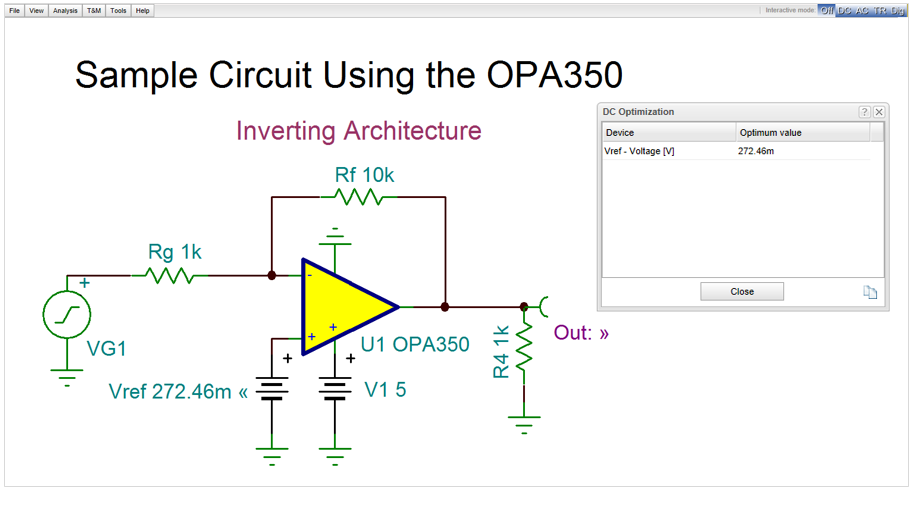Projects Circuit Diagram Operational amplifiers (op amp) are linear devices that have all the properties required for nearly ideal DC amplification and are therefore used extensively in signal conditioning or filtering or to perform mathematical operations such as adding, subtracting, integration, and differentiation. The purpose of this article is to present 10 basics circuits for newcomers to electronics designs and

The circuit operates from a dual supply +Vcc and -Vee which ensures a constant supply. The voltage that appears at the output, Vout of the amplifier is the difference between the two input signals as the two base inputs are in anti-phase with each other. So as the forward bias of transistor, TR1 is increased, the forward bias of transistor TR2 is reduced and vice versa. Operational Amplifier Circuits as Computational Devices So far we have explored the use of op amps to multiply a signal by a constant. For the inverting amplifier the multiplication constant is the gain R2 − R1 and for the non inverting amplifier the multiplication constant is the gain R2 1+ R1. Op amps may also perform other

PDF Lecture 23 Design of Two Circuit Diagram
One of the most famous of these was the LM741 op-amp. You still see many circuits using this op-amp. Fortunately, manufacturers kept the pin layouts the same for the ever-increasing and improving range of op-amps. Because the external feedback components largely determine the behavior of op-amp circuits, you can generally substitute other op-amps. the op amp's place in the world of analog electronics. Chapter 2 reviews some basic phys-ics and develops the fundamental circuit equations that are used throughout the book. Similar equations have been developed in other books, but the presentation here empha-sizes material required for speedy op amp design. The ideal op amp equations are devel- first considering some of the fundamentals of op-amps, and from there using KCL circuit analysis to explore and develop common op-amp circuits. Next, some practical considerations are covered that view the op-amp from a real-world perspective which varies from the ideal. Finally, an op-amp circuit is actually constructed on a breadboard

An op-amp has two inputs, an inverting terminal (labeled „-") and a non-inverting terminal (labeled „+"). And has a single output. The first input is called inverting because the output voltage is inverse of the voltage applied at the inverting input, times the gain of the amplifier circuit.If we apply the signal to the non-inverting input we get the same signal on the output, times gain. Lecture 8: Op-Amps; About this Video. Circuit design is complicated by interactions among elements, but these interactions can be reduced or eliminated by using an op-amp as a buffer. This lecture covers how to analyze and design op-amp circuits. Lecture handout (PDF) Lecture slides (PDF) Recitation Video

PDF Op Amps for Everyone Design Guide (Rev. B) Circuit Diagram
Operational amplifiers (op-amps) are some of the most important, widely used, and versatile circuits in use today. The first op-amp used vacuum tubes and was released in 1941 by Bell Labs. The ubiquitous ua741 was released in 1968 and is considered by many to be the standard upon which others are based. It is still in production today from DESIGN EXAMPLE OF A TWO-STAGE OP AMP Example 23-1 - Design of a Two-Stage Op Amp If K N'=120µA/V2, K P'= 25µA/V2, V TN = |V TP | = 0.5±0.15V, N = 0.06V-1, and P = 0.08V-1, design a two-stage, CMOS op amp that meets the following specifications. , =. =) = /) 3 (/) =--+ (/) =
